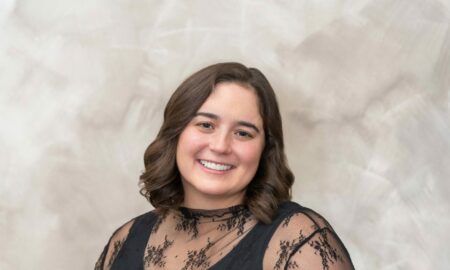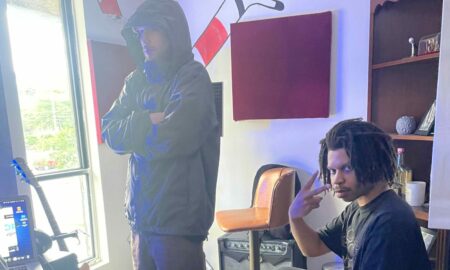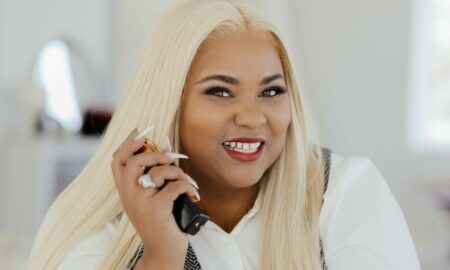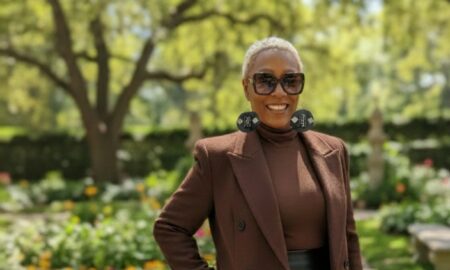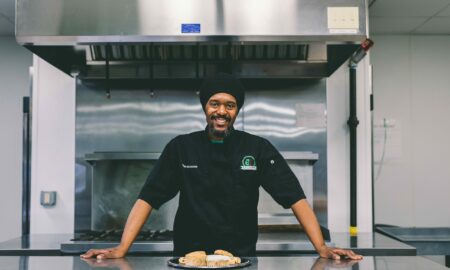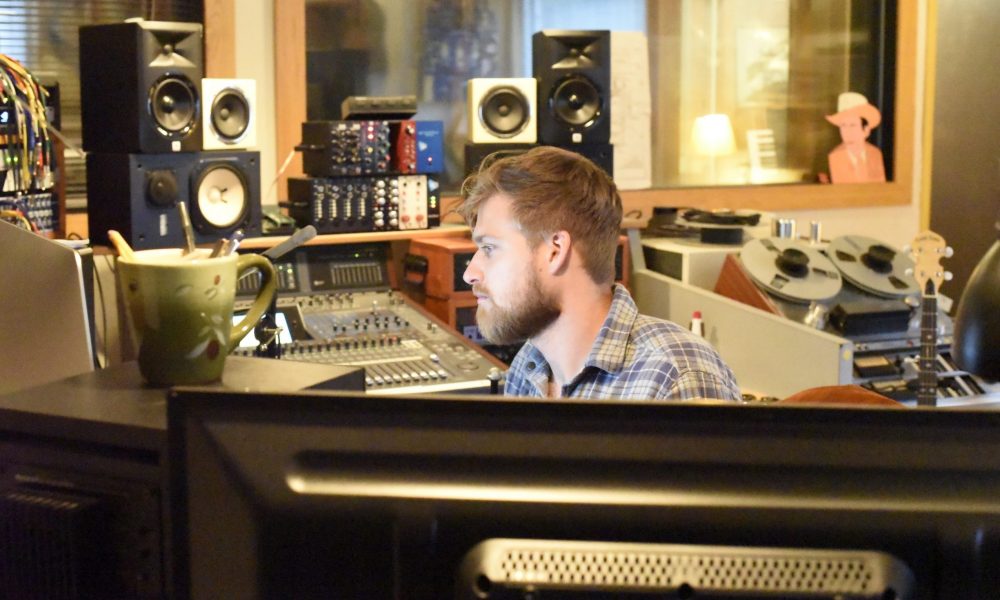

Today we’d like to introduce you to Thomas Avery.
Thomas, let’s start with your story. We’d love to hear how you got started and how the journey has been so far.
My musical story begins where my life begins. My parents, professional musicians themselves, have countless pictures of me in diapers playing with toy keyboards and reaching up as high as I could to “play” their piano, pressing the keys to make random notes ring out. The look of pure joy on my face is always striking when I look back at those pictures. Over the years, I would pick up drums and guitar and various instruments, each time subconsciously adding a deeper level of understanding to what Music meant as I plucked or banged or bowed. But musical instruments always felt like toys to me growing up – things to be played with, not labored over.
Of course, later in life, fascination turned into understanding and sometimes even obsession, and by the time I reached college age, I found myself completely immersed in Music. I think a huge turning point was the realization that Music wasn’t limited to merely a fun activity, but it could actually support my life financially and offer a professional satisfaction unlike anything else I’d learned in school or otherwise. At the University of Georgia in Athens, I studied Classical Guitar, Jazz Piano, Composition, and Music Business, but I often found the deepest education lurking around downtown, hidden in the minds of musicians in bands at the plentiful (and prodigious) clubs on every corner. During this time, I rarely thought about or spent time on anything outside of music-making, a preoccupation I now realize was incredibly fortunate to have been afforded to me.
Eventually, I found myself gravitating toward recording studios in Athens, establishments that are of equally high caliber in that city, if not as numerous or well-advertised, as the bars and venues in town. Over the course of a grueling summer internship at Chase Park Transduction Studios, I found myself nostalgic as I basked in the dim studio lights and hum of electrical equipment, listening to musicians play and watching engineers capture their sounds. The strange and beautiful microphones reminded me of ancient relics or alien technology I’d seen in movies. That summer brought me back to childhood afternoons spent at my dad’s studio when I had no interest in or understanding of what he was doing with all those knobs and faders. It still comforts me every time I walk into my studio or any studio for that matter, and I get the feeling, “this is where I’m supposed to be.”
Overall, has it been relatively smooth? If not, what were some of the struggles along the way?
Objectively, my road has run about as smooth as it gets. I have to recognize that privilege has made it a heck of a lot easier to build a career in Music than the vast majority of people who go into it. My parents gave me every opportunity to succeed, both through an excellent and expensive education at The Lovett School in Atlanta and by allowing me the freedom to find my own path in life, even if they couldn’t help but nudge me in the direction of the family business.
That is not to say that I have not experienced challenges along the way, and the biggest one is certainly wrapped up in my sense of privilege, but I don’t think it is at all unique to me. I’ve heard it called “Imposter Syndrome,” but that seems a little dramatic. I always just thought of it as “self-doubt.” I think that anyone who sets out on a creative endeavor, especially if there is the added pressure of attempting a career in it, will have this experience to some degree, and I have seen many a potential music career halted because of it. It takes a long time to overcome the feeling that you are not worthy of success, and I don’t think that any amount of socio-economic fortune that can spare you from it.
Inheriting a family business helps to open a lot of doors and present a lot of opportunities, but it can make it difficult along the way to be sure you are choosing your own path rather than simply coasting on the success of your family. Establishing my own career under the shadow of my dad was challenging for a long time and sowed enough doubt in myself and my professional direction to cause me to question my work at certain points. But there’s one thing for which you can always depend on yourself – hard work. In my experience, putting in that extra effort saves you from the cycle of self-doubt that can be so discouraging.
Can you give our readers some background on your music?
I always describe myself first as a Musician, but like so many musicians, I get calls by different people for different jobs. Some know me only as an Engineer, some only as a Composer, and I love having the ability to float between different roles from job to job. My college teacher and band director Steve Dancz, who continues to mentor me in my professional and personal life, used to say that you want to put yourself in a position where you never have to say “no” to a job simply because you haven’t developed your skills enough to do it. That has been my philosophy for as long as I remember, even before Steve put it into words for me in college. I saw my Dad living out this attitude in his own work writing music for CNN, and it continues to prove successful through each stage of my life.
The first few years of my career were spent composing music for CNN under my Dad’s guidance. It took a long time to gain the skills and knowledge to be able to make music that had the level of production and artistic direction that it takes to craft something so specific for a client, but after a while, I started to hear my music played on TV, which I admit was pretty exciting and validating. The most notable show using my music is Fareed Zakaria GPS, which airs Sundays at 10 am and 1 pm. I am also currently working as the Engineer, Orchestrator, and Assistant Composer for the upcoming Lifetime movie “The Mahalia Jackson Story,” starring Danielle Brooks and directed by Kenny Leon, which comes out Easter Sunday 2021.
Of course, that type of work is rewarding from a professional and financial perspective, but my work as a Producer, often working with up-and-coming bands, satisfies the part of me that likes to play outside the sandbox. I think it is important to work in different worlds when you can, and I learn so much from every new project that comes my way. It is on these projects where I really get to use all the tools and spaces in my studio, and collaborating with bands and artists never ceases to be fun.
What is “success” or “successful” for you?
I think an elegant view of success must include the proper exchange of money for the work that you do, as well as the simple satisfaction that comes with the completion and delivery of that work. It’s a tough dilemma for many musicians, as it certainly was and still can be for me. The balance between selling out and maintaining artistic integrity doesn’t ever seem to square up, but somewhere in the subtle effort of holding up the two is where I usually find personal success.
One of the most important windows of time in my work is the period after wrapping up a project and before I move on to the next. This is a reflective period and is important for me to look back on the work I’ve done and judge whether it was a personally successful project or not. There have been plenty of projects that paid good money but left me wanting artistically. On the flip side, I’ve done quite a bit of work that was fun and challenging but ended up taking up many more hours than I was being paid for. When you’ve just finished a job there is an opportunity to learn and improve so that the next one aligns more with my vision of success and gives me the chance to adjust expectations at the beginning of a project so I can hit my financial and artistic goals.
It is also crucial to judge the success of project-based work on the appreciation of the fans and viewers who ultimately see and hear the product. It is definitely important for the work to be spread and have some impact on the wider public beyond just the clients you’re working for. But this is a tricky thing to measure and makes it all too easy to let your ego take the wheel. I try to check in and gently support this aspect of success, but not obsess over it.
Contact Info:
- Address: 800 East Ave. NE
Atlants, GA 30312 - Website: 800east.com
- Phone: 404-808-6293
- Email: thomasaverymusic@gmail.com
- Instagram: https://www.instagram.com/800eaststudios/





Suggest a story: VoyageATL is built on recommendations from the community; it’s how we uncover hidden gems, so if you or someone you know deserves recognition please let us know here.













